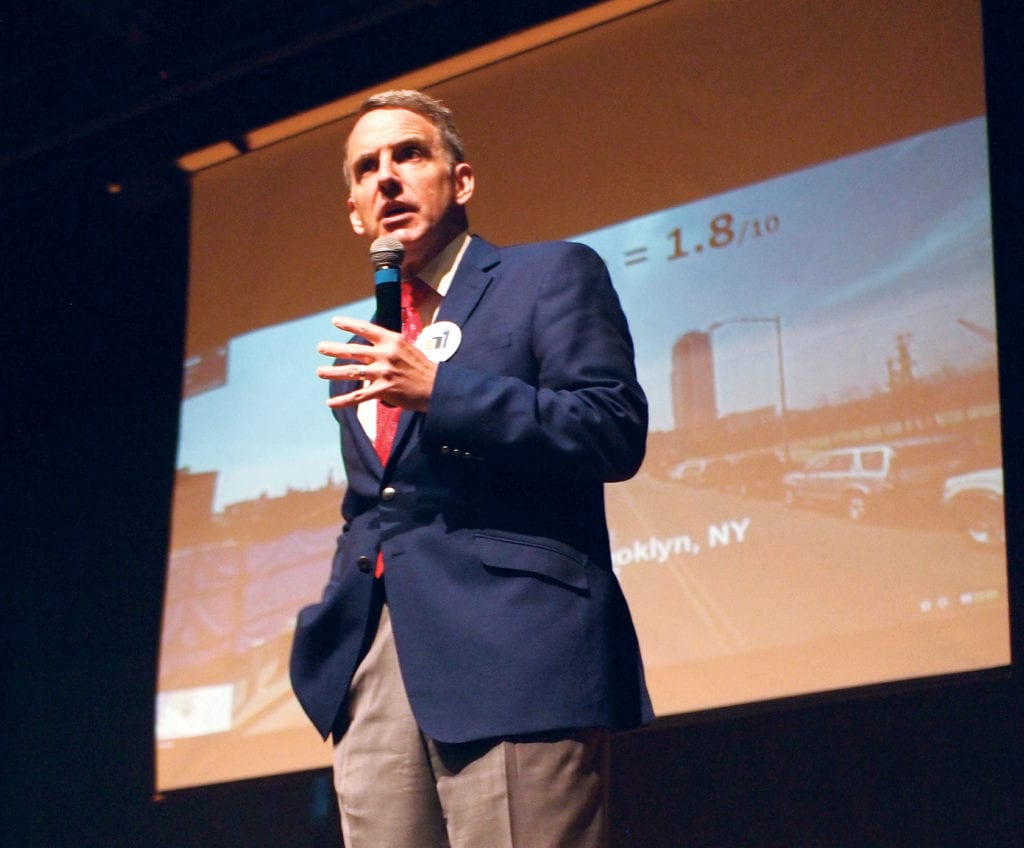
Harvard University Economics professor Ed Glaeser has become an icon in the YIMBY movement. In 2011 he wrote “Triumph of the City: How Our Greatest Invention Makes Us Richer, Smarter, Greener, Healthier, and Happier,” a tome that in some ways sums up the tenets of YIMBY-ism. The Banner sat down with Glaeser for a brief interview after his keynote speech at the YIMBY Town Conference. The following has been edited for clarity and brevity.
1.What could the city do differently to increase production of units affordable to low- and moderate-income residents?
Ed Glaeser: “It’s clear that supply on its own is unlikely to solve every problem. We clearly also need programs like making sure our Section 8 voucher program is as robust as it could be.
But I don’t think that’s ever going to be large enough to solve the problem. I think new construction is a part of the answer — a large part of the answer. But it needs to be much more oriented towards middle-income people. Part of the problem is we have such a difficult hurdle to get through. I don’t think in the long run the answer is to say no to luxury housing, but I do think unquestionably that we should be fast-tracking middle-income and lower-income housing. We should be asking, ‘What would it take to actually provide enough of that housing at a reasonable cost?’
One of the big things is that we need a city plan that will allow as-of-right construction. Because right now that plan is so antiquated that any neighborhood that has standing can say no to any project. And that makes it so, unless you are building luxury housing, you can’t get through that hurdle.
A good plan that is community-developed, but that allows serious density, as-of-right, in various areas — that would be tremendously helpful. We need to think about other things that are pushing costs and make sure we’re doing all we can to make it possible to deliver.
2. With so much luxury housing in the pipeline, what levers could the city use to compel developers to build middle income housing?
Glaeser: Competition is the best guarantee of this. Any time you have a world where it takes seven years to get through the permitting process and you have to be incredibly politically savvy, if you happen to be politically savvy, you’re going to get a huge cut.
A world in which it’s easy to get started and deliver reasonable units is a world in which those [luxury unit] profits start disappearing. I’m not at all trying to generate any kind of a give-away to developers. So if we say in exchange for building up, you need to pay larger fees to the city, I’m very keen on that.
3. What do you think of the proliferation of vacant units in luxury buildings such as the Millennium Tower?
Glaeser: I’m keen on things like land taxes for vacant land. My primary reaction to vacant luxury homes is that, if you don’t like that from the city’s perspective, you’re not taxing it high enough. You tell me there’s going to be some guy who’s going to buy a $10 million dollar unit and never set foot in the city of Boston? That means he’s going to pay $50,000 a year in taxes? I want that guy. I want that check coming in to pay for schools.






